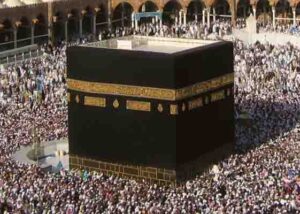What is the legal ruling for the Udhiyah sacrifice (Qurbani) in the Hanafi Madhab?
Quran
Hadith
Islamic Text
Udhiyah Sacrifice (Qurbani) is Wajib for those with Nisab Hirman al-Zakah in the Hanafi Madhab.
فَصَلِّ لِرَبِّك وَانْحَرْ
And pray to your Lord and sacrifice (to Him). (Surah al-Kowthar, 2).
In this Holy verse of the Quran, we find a command to pray and sacrifice. Normally, a command in the Quran and Hadith leads to an obligation. This is one of the proofs used by the scholars of Hanafi Madhab to establish the ruling of Udhiyah being an obligation and not merely a recommendation.
[الكوثر: 2] {فَصَلِّ لِرَبِّك وَانْحَرْ}
أَيْ وَانْحَرْ الْأُضْحِيَّةَ وَالْأَمْرُ يَقْتَضِي الْوُجُوبَ. (المبسوط)
And pray to your Lord and sacrifice (to Him). (Surah al-Kowthar, 2).
Meaning sacrifice the Udhiyah, and the command necessitates obligation. (Imam al-Sarakhsi, al-Mabsoot).
Udhiyah is only obligatory on a person who has sufficient wealth (Nisab Hirman al-Zakah). Additionally, there are other conditions that are required before Udhiyah becomes Wajib. Therefore, students are encouraged to study the subject thoroughly from classical books of Fiqh with reliable teachers.
The designated days for the sacrifice are the 10th (Eid day), 11th and 12th of Dhul Hijjah. On the 10th, it must be done after the Eid Salah and on the 12th, it must be done before Maghrib, if one delays it that far.
And Allah (Most High) Knows Best.
– Answered by Shaykh Noorud-deen Rashid (08.07.2021)
See also:
Increasing Worship During Dhul Hijjah
Cutting Hair and Nails in Dhul Hijjah
Reward for Fasting the Day of Arafah
See also (video):






